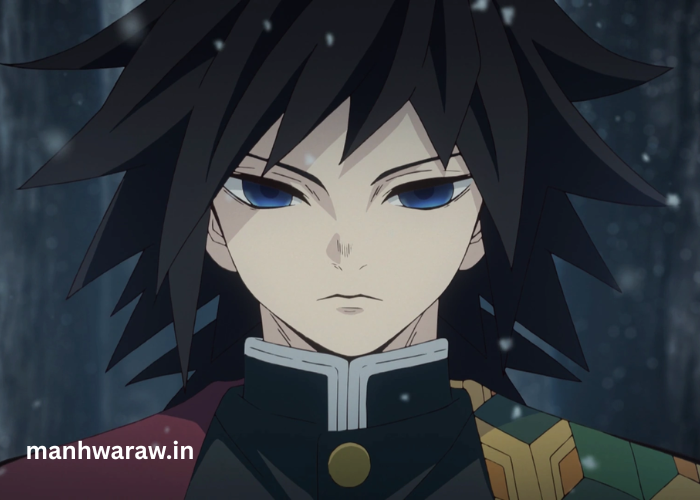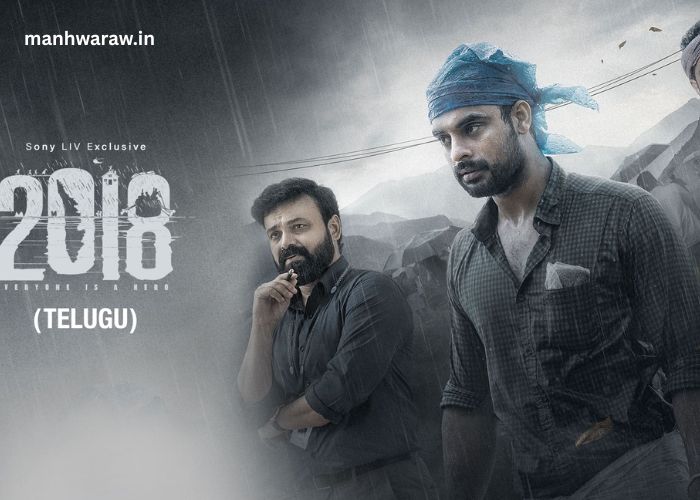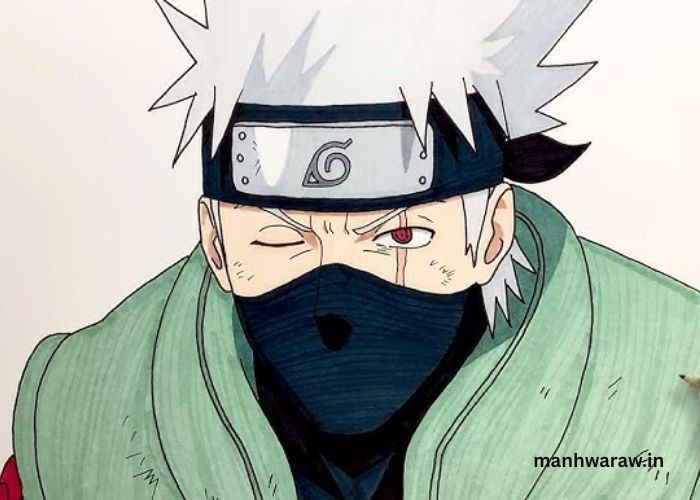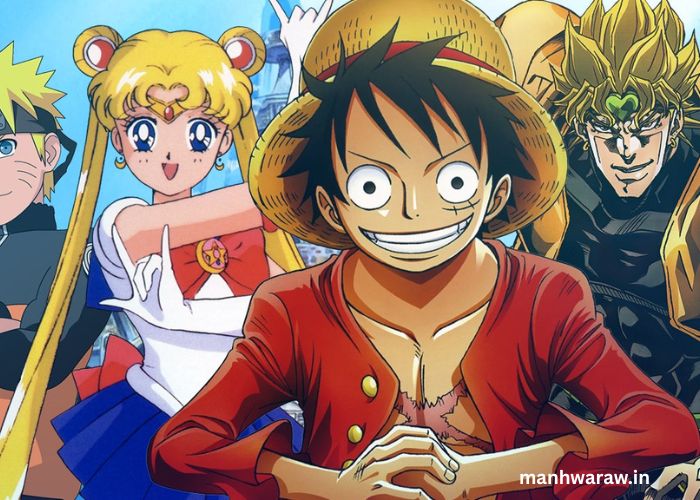Giyu Tomioka, the Water Hashira in Demon Slayer: Kimetsu no Yaiba, is a character defined by both strength and sorrow. As one of the highest-ranking members of the Demon Slayer Corps, Giyu is known for his calm demeanor, impressive combat abilities, and unwavering sense of duty.
However, beneath this stoic exterior lies a troubled past that shapes his actions and personality throughout the series. Giyu’s sorrowful history is intertwined with significant moments that have defined his life, from his role in the Demon Slayer Corps to his interactions with other characters.
Giyu’s emotional struggles are not just the result of his own personal losses but also the weight of responsibility he carries as the Water Hashira. His past, marked by trauma, regret, and guilt, is central to understanding the complexities of his character.
As the series progresses, Giyu’s sorrow reveals itself in subtle yet poignant ways, and these emotions influence his decisions and relationships. This blog post delves into Giyu Tomioka’s sorrows, exploring his tragic backstory, the impact of his past on his present actions, and his journey of self-redemption.
Key Points:
- Giyu Tomioka’s sorrow is rooted in his tragic past and personal losses.
- His role as the Water Hashira carries immense responsibility and burden.
- Giyu’s emotional struggles deeply affect his relationships with others.
What is Giyu Tomioka’s Tragic Past?
Giyu’s past is marked by profound loss and guilt, which directly influence his personality and actions. As a young child, Giyu witnessed the slaughter of his family by demons, a traumatic experience that left him scarred emotionally. The loss of his loved ones pushed Giyu into a life of solitude and self-doubt, contributing to his stoic and distant nature. This early trauma shaped his view of the world, especially his feelings of powerlessness and guilt for not being able to save his family.
Giyu’s path to becoming a Demon Slayer was not easy. He was taken in by a former Hashira who trained him in the Water Breathing techniques. However, even after becoming a skilled swordsman, Giyu was unable to erase the sorrow of his past. The emotional toll of losing his family, coupled with his guilt for being unable to protect them, continues to haunt him throughout the series. His sorrow is further compounded by his inability to save his mentor, Urokodaki, from the demons, despite his strength and skill.
| Event | Emotional Impact on Giyu | Consequence |
| Family’s Slaughter | Deep trauma and guilt for being powerless | Struggles with emotional numbness |
| Becoming a Demon Slayer | Acceptance of loss but constant reminder of failure | Develops a sense of duty but isolation |
| Mentor’s Death | Guilt for not protecting Urokodaki despite his strength | Strengthens resolve but adds to inner sorrow |
Important Reminder: Giyu’s tragic past is crucial in understanding his complex and emotionally burdened character.
How Does Giyu’s Guilt Affect His Relationships?
Giyu’s feelings of guilt significantly impact how he interacts with others, especially those within the Demon Slayer Corps. One of the most prominent examples of this is his relationship with Tanjiro Kamado, the main protagonist of the series. In the early stages of their relationship, Giyu is cold and distant toward Tanjiro, especially after the death of Tanjiro’s family. Giyu’s bitterness stems from his guilt for not being able to protect his own family and, by extension, feeling responsible for Tanjiro’s suffering.
This guilt manifests in Giyu’s reluctance to form close bonds with others. He isolates himself emotionally and struggles to open up to his fellow Hashira, often appearing cold and indifferent. His interactions with his fellow Demon Slayers are often laced with a sense of detachment, and he rarely allows himself to be vulnerable. However, as the series progresses, Giyu’s relationship with Tanjiro and the other members of the Corps begins to evolve. Despite his internal struggles, Giyu’s sense of responsibility and loyalty to his comrades slowly begins to override his self-imposed emotional isolation.
| Relationship | Giyu’s Approach | Emotional Struggles |
| Tanjiro Kamado | Initially cold and distant, due to his guilt and trauma | Guilt for Tanjiro’s suffering, fears he’s repeating his own failures |
| Other Hashira | Detached and reserved | Struggles to form bonds due to fear of losing others |
| Urokodaki | Strong mentor-mentee bond | Guilt over not protecting Urokodaki from demons |
Important Reminder: Giyu’s relationships are often shaped by his own sense of guilt and the fear of losing others, resulting in emotional barriers.
How Does Giyu’s Duty as the Water Hashira Contribute to His Sorrow?
As the Water Hashira, Giyu is tasked with immense responsibility. His position demands that he protect humanity from the demons that threaten their world, which is an emotionally taxing duty. The weight of his role is exacerbated by the deaths of his fellow Hashira, particularly his mentor and the former Hashira who trained him. Giyu feels the burden of having to live up to the legacy of those who came before him, and he fears that he may not be able to protect those he cares about in the same way.
Giyu’s sense of duty often puts him at odds with his own emotions. He suppresses his grief and struggles with the trauma of his past because he feels that it is his responsibility to continue fighting and protecting others. This sense of duty leads to a self-sacrificial mindset, where Giyu is willing to put others’ needs above his own emotional well-being. His internal conflict between his duty and his sorrow is a central theme in his character arc, as he strives to reconcile his past with the expectations placed upon him as a Hashira.
| Duty | Emotional Impact | Consequences |
| Becoming the Water Hashira | Burden of living up to the legacy of previous Hashira | Struggles with self-doubt and isolation |
| Protecting Humanity | Constant emotional repression to fulfill his role | Guilt for not being able to save everyone |
| Mentorship | Desire to guide and protect the next generation of Demon Slayers | Feels responsible for others’ lives, leading to emotional strain |
Important Reminder: Giyu’s sense of duty is a driving force behind his character, but it also adds to his sorrow and emotional isolation.
How Does Giyu’s Journey Lead to Emotional Growth?
Despite the overwhelming sorrow and guilt that burden him, Giyu’s journey throughout Demon Slayer is one of emotional growth. His interactions with Tanjiro, Nezuko, and the other members of the Demon Slayer Corps gradually break down the emotional walls he has built around himself. Giyu learns to accept that he cannot save everyone, and that his role as the Water Hashira is not about perfection, but about doing the best he can with the strength he has.
One of the most significant moments in Giyu’s emotional journey is when he decides to mentor Tanjiro, despite his own reservations. This act signifies Giyu’s acceptance of his own vulnerabilities and the realization that he does not have to carry the weight of the world alone. Giyu’s emotional growth is also reflected in his increasing willingness to show empathy and compassion toward others, allowing him to open up to his fellow Demon Slayers. As the series progresses, Giyu begins to understand that it is okay to feel sorrow and grief, and that these emotions do not make him weak. Instead, they make him human.
| Emotional Growth | Key Moment | Impact on Giyu |
| Acceptance of Vulnerability | Mentoring Tanjiro and showing empathy | Giyu begins to break down emotional walls |
| Self-Acceptance | Realizing that perfection is unattainable | Giyu learns to embrace his flaws and emotions |
| Compassion for Others | Showing care for his comrades despite past grief | Giyu opens up emotionally, forming stronger bonds |
Conclusion
Giyu Tomioka, the Water Hashira, is a character whose sorrows define much of his journey in Demon Slayer. His tragic past, the weight of his responsibilities, and his guilt for not being able to protect those he cares about are central to his character development.
However, as the series progresses, Giyu’s emotional growth allows him to begin reconciling with his past and embracing the relationships he forms with others. Giyu’s journey is a poignant exploration of trauma, guilt, and the healing process, making him one of the most complex and relatable characters in Demon Slayer.
FAQ’s
- What is Giyu Tomioka’s tragic backstory?
Giyu Tomioka lost his family to demons at a young age, which left him emotionally scarred and filled with guilt. - How does Giyu’s guilt affect his relationships?
His guilt causes him to be emotionally distant and reluctant to form close relationships, fearing he may lose others. - What is Giyu’s role as the Water Hashira?
As the Water Hashira, Giyu is responsible for protecting humanity from demons, a duty that weighs heavily on him due to past failures.





